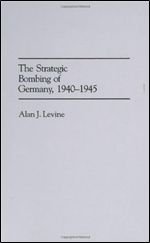Scholarios was primarily interested in theology. Yet, his wide knowledge of the ancient Greek philosophical literature and his thorough study of the Greek translations of some major Latin Christian works (such as Augustine’s De Trinitate and Aquinas’ two Summae) in the thirteenth and fourteenth centuries, in combination with his knowledge of Latin, made him interested in philosophy, especially Aristotle, and in the question of the place of this philosophy in Christian thought.
He developed his views on it in the context of his polemics (1443 onward) against the religious philosophy of George Gemistos (Plethon). Scholarios wrote a refutation of Plethon’s short but bitter anti-Aristotelian lecture in Florence (1439) On the Issues on Which Aristotle Disagrees with Plato, labeled Against the Impasses Ignorantly Imputed by Plethon to Aristotle (1443-1444). The topics treated there are God and his relation with the world; Aristotle’s doctrine of the homonymy of ‘‘being’’; his doctrine of ‘‘primary substance’’; his conception of the ‘‘universal’’ as ‘‘matter’’ and the ‘‘particular’’ as ‘‘form’’; his view on the simultaneity of the ‘‘relatives’’; his principle of contradiction and its implications on determinism; various matters of human psychology; the Aristotelian conception of virtue as ‘‘meanness’’; the ultimate end of
G
Human being; the famous cosmological ether problem; whether the source of sun’s heat is its nature or, as Aristotle said, its rapid motion; the question of the cause of the motion of stars; teleology in nature and its relation with Providence; Aristotle’s rupture of the universal law of causality by construing human deliberation as ultimate principle of many things; his conception of ‘‘movement’’ or ‘‘change’’ in general; and Aristotle’s rejection of Plato’s forms.
The central discrepancy between Scholarios and Plethon stems from Plethon’s rejection of Aristotle’s doctrine of‘‘entelechy’’ as immanent in everything and cause of the transition from ‘‘potentiality’’ to ‘‘actuality’’; Plethon’s Neoplatonic metaphysics postulated a hierarchy of beings, each of them responsible for the existence and the qualities of its inferior. Scholarios objected in a clearly Thomist spirit that God is the causa remota of whatever goes on in the world and governs the world by having implanted to each sort of creature a power to directly produce some concrete effects, this power being Aristotle’s self-“actualization.’’
Scholarios was so filled with indignation at reading Plethon’s major work, the Laws, where a highly elaborated pagan, anti-Christian utopia was described, that he threatened the author to burn him alive (in fact, he finally burnt Plethon’s writing). He regarded Aquinas’ Christian Aris-totelianism as a perfect tool to combat Plethon. Radicalizing some arguments of Aquinas, he claimed that Aristotle did not believe in the eternity of the world and that God, to Aristotle, is the cause not only of the movement in the world but also of the very existence of the universe. Scholarios also compiled a Florilegium Thomisticum, both from the Summa contra Gentiles and the Summa theologiae, which he intended to use as a source of arguments for producing a refutation of Plethon’s Laws, as well as another Florilegium Thomisticum, from the Summa contra Gentiles (III, 84106), in order to refute especially ch. II, 6 of Plethon’s masterpiece, which circulated as an independent treatise On Fate. Scholarios, taken up with his anti-Catholic struggle, did not find time to write these refutations; still, the Thomistic arsenal of the intended refutation, as well as his systematic treatises On the Divine Providence and Predestination, stand as a mark of what he had in mind when saying that Plethon’s philosophy is insane. Instead of Plethon’s Platonic doctrine of the incorruptibility of the human intellect, which postulates the eternal preexistence of the human soul, Scholarios deemed the Thomistic doctrine of the simultaneity of coming-into-existence of body and soul as more consistent. Instead of Plethon’s Neoplatonic-Averroist doctrine of the faculty of ‘‘phantastikon’’ as the ‘‘medium’’ between intellect and body, Scholarios adopted the Aristotle-based Thomistic doctrine of how a created soul forms a ‘‘direct’’ union with body. Against Plethon’s doctrine of fate, Scholarios adopted Thomas’ doctrine of the way and the degree the superlunar world affects humans in the context of God’s Providence as well as of Predestination and free will.
Scholarios also produced a Thomistic interpretation of Gregory Palamas’ distinction between God’s ‘‘essence’’ and ‘‘energies.’’ God’s energeiai are intentiones/epinoiai, whose mode of existence is partly objective and partly subjective; God’s simplicity is grasped multifariously through the results of His creative and gratifying activity. Scholarios also suggests that Palamas’ solution to the problem of God’s simplicity and multiplicity is close to John Duns Scotus’ application of the distinctio formalis to God.
Scholarios also commented upon or paraphrased - in part or as a whole - Porphyry’s Isagoge and several logical and physical works of Aristotle (Categories, Physica, De caelo et mundo, De anima, Parva naturalia, Meteorologica). He resorts, sometimes explicitly and sometimes implicitly, less to the ancient Greek and Byzantine commentators than to the medieval Latin ones, the latter deemed by him as superior. Of Aquinas’ oeuvre, he translated the De ente et essentia along with Armadur de Bellovisu’s Commentary on it (into which he inserted an interesting discussion of the problem of the divine simplicity in Thomistic, Scotist, and Palamite terms), the Commentaries on Aristotle’s De interpretatione and De anima and a part of the Commentary on Physics, and the pseudo-Thomistic De fallaciis. Besides, he elaborated an abridgment of Thomas’ Summa contra Gentiles and of the Ia and the Ia IIae of the Summa theologiae. His version of Aquinas’ Commentary on the Posterior Analytics is not extant. He also translated the greater part of Petrus Hispanus’ Summulae logicales, Gilbertus Porretanus’ De sex principiis, and a part of Radulphus Brito’s Ars vetus (on Intention/epinoia). He also wrote a short treatise On the Compatibility of Aristotle’s and Plotinus’ Definitions of Human Happiness.
See also: > Aristotelianism in the Greek, Latin, Syriac, Arabic, and Hebrew Traditions > George Gemistos Plethon > Gregory Palamas > John Duns Scotus > Tho-mism, Byzantine




 World History
World History





![Black Thursday [Illustrated Edition]](https://www.worldhistory.biz/uploads/posts/2015-05/1432470149_1431513568_003514b1_medium.jpeg)



